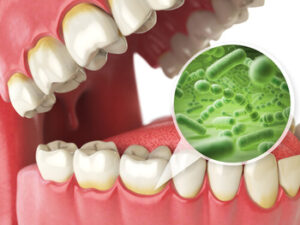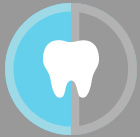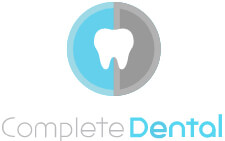If your little one has suddenly developed bad breath, you’re certainly not alone. Many parents notice an unpleasant smell in their child’s mouth and wonder if it’s a cause for concern. In this article, we’ll explore why a toddler’s breath can shift from sweet to stinky, what might be lurking behind it, and how you can help restore that fresh, clean smile every parent loves.
Understanding Bad Breath in Toddlers: What’s Going On?
A child’s bad breath is called halitosis, and it can arise for a range of reasons. Sometimes, it’s a temporary issue caused by certain foods, and at other times, it can point to deeper medical conditions. Understanding the causes of bad breath in kids can help you determine when a quick fix will do and when it’s worth seeking medical attention.
Why Do Toddlers Suddenly Develop Bad Breath?
A toddler’s breath can quickly change from neutral to pungent for many reasons. Here are some common causes:
1. Poor Oral Hygiene
A child’s teeth and oral cavity require regular cleaning. Without it, food particles can remain lodged between tiny teeth, allowing odour‑causing bacteria to multiply. These bacteria sit on teeth and the tongue, releasing gases that cause an unpleasant smell.
2. Mouth Breathing
If your toddler has a habit of breathing through their mouth, especially when congested, the result can be a dry mouth. Not enough saliva means that the mouth doesn’t wash away food debris and bacteria, leading to bad breath in toddlers.
3. Tooth Decay
Tooth decay can create deep pits and holes where food and bacteria accumulate. These spots can lead to a persistent bad smell that doesn’t respond well to brushing alone.
4. Dry Mouth
Saliva production slows when your child sleeps, making morning breath a common experience. Chronic dry mouth caused by dehydration or breathing through the mouth can intensify the problem.
5. Sinus Infections and Nasal Congestion
Sinus infections and seasonal allergies can cause thick, dark green mucus to drip down the throat. This post‑nasal drip can lead to an unpleasant smell that lingers throughout the day.
6. Diet and Food Choices
Smelly foods, sulphur-producing foods like onions and garlic, and a high-protein diet can affect your child’s breath. Tiny pieces of pungent foods can linger in the mouth long after a meal.
7. Medical Conditions
Although rare, certain medical conditions can cause chronic bad breath. In some cases, stomach acids or tonsil stones may be to blame.
Helping Your Child Maintain Good Oral Health
Preventing bad breath in toddlers is largely about instilling strong habits from an early age. Here’s how you can help:
Establish an Oral Hygiene Routine
Encourage brushing twice a day with a soft‑bristled toothbrush and a pea‑sized amount of child‑friendly fluoride toothpaste. Make sure to clean the tongue, too, as this is where smelly bacteria often sit.
Regular Dental Visits
Regular check‑ups with a dentist help spot early signs of tooth decay, gum disease, or deep pits in the teeth. Your child’s dentist can also recommend treatments such as fissure sealants for long‑term protection.
Watch What Your Kids Eat
Smelly foods and sulphur-producing foods can linger in a child’s mouth. Limiting these and opting for a well‑rounded diet rich in fresh fruits and vegetables can minimise the risk of bad breath.
Stay Hydrated
Encourage your child to drink water throughout the day. Proper hydration promotes saliva production and reduces the risk of dry mouth.
Chewing Sugarless Gum
For older toddlers and preschoolers (and always under supervision), giving kids sugarless chewing gum can stimulate saliva flow and help wash away food particles and smelly bacteria.
Bad Breath in Children: When to Seek Medical Attention
While bad breath in children is common and often linked to oral hygiene or dietary habits, it can also be a sign of an underlying cause that needs medical attention. Consult your child’s dentist if you notice:
- Chronic bad breath that doesn’t respond to brushing and oral hygiene efforts
- Bad breath associated with thick, dark green mucus or signs of a sinus infection
- Bad smell coming from the nose or throat
- Symptoms like coughing, difficulty swallowing, or snoring
- Bad breath associated with other medical conditions, such as diabetes or acid reflux
- Suddenly worsening or persistent bad breath
Say Goodbye to Stinky Breath: Simple Remedies for Toddlers
Here are some simple bad breath remedies you can try at home:
- Maintain a consistent oral hygiene routine
- Use a soft toothbrush suitable for a child’s teeth
- Try cleaning the tongue with a soft tongue cleaner
- Give kids sugarless gum (age‑appropriate and safe) after meals
- Stay alert for signs of dehydration
- Ensure a well‑rounded diet that supports overall oral health
- Avoid strong or pungent foods right before bed
- Wash and replace stuffed animals or comfort toys that may carry lingering smells
- Teach your child to breathe through the nose when possible
Partnering with Your Dentist to Keep Little Smiles Fresh
Routine check‑ups with a dentist are vital for early detection of bad breath causes such as tooth decay, gum disease, or deep pits that can trap food and bacteria. A dentist can:
- Spot early signs of tooth decay and recommend the best treatment
- Provide a thorough cleaning and professional oral hygiene guidance
- Advise on the best oral care practices for your child
- Suggest treatments like fissure sealants to protect deep grooves in the teeth
- Evaluate for any medical conditions impacting oral health
Understanding Bad Breath in Toddlers and Its Impact
Bad breath in toddlers can be a source of discomfort and concern for both parent and child. By understanding its common causes, from dried‑out oral cavities due to mouth breathing and dehydration to lingering food particles to chronic medical conditions, you can take action early. Helping your child maintain strong oral hygiene habits can lead to a lifetime of fresh breath and a healthy smile.
Helping Your Toddler Maintain Fresh Breath and a Healthy Smile

If your child’s breath doesn’t improve despite following these steps, or if you notice other signs like thick nasal discharge, tonsil stones, or persistent bad breath, seek medical attention. The right medical and dental care can help pinpoint any underlying cause and ensure your child’s oral health and overall well‑being.
Hygiene Beyond the Mouth: Could Toys and Bedding Be the Culprit?
When it comes to sudden bad breath in toddlers, it’s easy to assume the cause lies entirely inside their mouth. However, external sources such as comfort items and bedding can also contribute to an unpleasant smell. Toddlers often have a favourite soft toy or blanket that travels everywhere with them, including mealtimes and bedtime. Over time, these items can collect saliva, milk spills, food debris, and even bacteria from their environment.
Unwashed dummies, sippy cups, or comfort toys can harbour odour-causing bacteria that transfer easily to the mouth, especially when children suck, chew, or cuddle them close to their faces. These bacteria, combined with remnants of smelly foods or milk, can create a lingering odour that mimics bad breath.
To help reduce the risk:
- Wash soft toys and bedding regularly using child-safe detergent
- Sterilise dummies and clean sippy cups thoroughly after each use
- Rotate comfort items so there’s always a clean alternative
- Avoid letting toys be used during meals or bottle feeds
By keeping your toddler’s favourite belongings clean, you’re not just improving hygiene, you’re also reducing the chances of confusing external odours with actual oral health concerns.
Could Genetics Play a Role in Your Child’s Oral Health?
While daily habits and diet play a big role in preventing bad breath, genetics can also influence your child’s oral health. Some children may inherit traits that make them more susceptible to dental issues, such as early tooth decay, enamel weakness, or low saliva production, all of which can contribute to halitosis.
For instance, if you or a close family member experienced frequent cavities or gum disease at a young age, your child may be at higher risk of the same. Similarly, some kids may naturally have deeper grooves in their baby teeth where food and bacteria can hide more easily.
Early intervention becomes essential when there’s a known family history of oral health concerns. Regular dental check-ups from a young age allow your child’s dentist to track development closely and apply preventive measures like fluoride treatments or fissure sealants.
Parents are encouraged to:
- Inform the dentist of any family history of dental or gum problems
- Monitor their child’s teeth more frequently if they’re at higher risk
- Take proactive steps to strengthen enamel through diet and oral care
Understanding your child’s genetic predispositions can help you stay one step ahead of any developing issues and keep their smile healthy for years to come.
When Medications Affect Your Toddler’s Breath
If your toddler is taking medication, even temporarily, it may be worth considering whether it’s affecting their breath. Some medications can reduce saliva flow, leading to a dry mouth and the perfect environment for bacteria to flourish. When saliva production drops, the mouth’s natural cleaning process slows down, allowing food particles and bacteria to accumulate.
Common culprits include:
- Antihistamines (used for allergies or hay fever)
- Antibiotics
- Decongestants
- Certain medications for asthma or reflux
When these medications are necessary for your child’s health, bad breath may become a side effect. In this case, good oral hygiene becomes even more important. Rinsing the mouth with water after taking medicine, brushing twice a day, and encouraging hydration can help reduce the impact.
If you’re concerned, discuss any side effects with your child’s dentist. They can suggest alternative medications, offer tips to counteract dry mouth, or rule out other underlying issues. Don’t stop a prescribed medication without professional guidance, but do keep your child’s medical and oral health teams informed.
Emotional Factors: Can Stress or Anxiety Affect Toddler Breath?
While stress may not be the first thing you associate with toddler breath, it can have surprising effects on a young child’s oral and digestive health. Though more common in older children, stress and emotional upset can occasionally influence younger kids as well, especially if they are dealing with big changes like starting childcare, a new sibling, or sleep disturbances.

- Digestive changes that alter stomach acid or cause reflux
- Disrupted saliva production, leading to dry mouth
- Mouth breathing due to tension or disrupted sleep
- Bruxism (teeth grinding), which can wear enamel and cause inflammation
These behaviours may seem subtle, but over time they can contribute to a dry oral environment or introduce more bacteria, both common causes of toddler bad breath.
To support emotional wellness:
- Maintain consistent routines and a calm bedtime environment
- Encourage positive expressions of emotion through play or storytime
- Ensure your child gets enough hydration and sleep
- Talk to your doctor if you notice signs of stress or anxiety
By looking at your child’s emotional well-being alongside their physical health, you can take a holistic approach to resolving the causes of bad breath.
Final Thoughts: Fresh Breath is Part of a Happy Childhood
A child’s smile is a reflection of their health and happiness. Helping your child maintain good oral health from an early age can prevent a host of issues down the track, including sudden bad breath in toddlers. By focusing on daily habits, a well‑rounded diet, regular check‑ups, and addressing any medical conditions promptly, you can set the foundation for a lifetime of fresh breath and strong, healthy teeth.
If you have concerns about your child’s breath or oral health, contact Complete Dental today to book a consultation.
Contact Coorparoo: 07 3801 6503
Contact Elanora: 07 5235 8199
References
- Johns Hopkins Medicine. (n.d.). Halitosis (bad breath). https://www.hopkinsmedicine.org/health/conditions-and-diseases/halitosis-bad-breath
- Cleveland Clinic. (n.d.). Mouth breathing. https://my.clevelandclinic.org/health/diseases/22734-mouth-breathing
- Oral Health Foundation. (n.d.). Sugar-free chewing gum. https://www.dentalhealth.org/sugar-free-chewing-gum
- Colgate. (n.d.). What is good oral hygiene? https://www.colgate.com/en-us/oral-health/adult-oral-care/what-is-good-oral-hygiene
- Mayo Clinic. (n.d.). Cavities/tooth decay: Symptoms and causes. https://www.mayoclinic.org/diseases-conditions/cavities/symptoms-causes/syc-20352892









